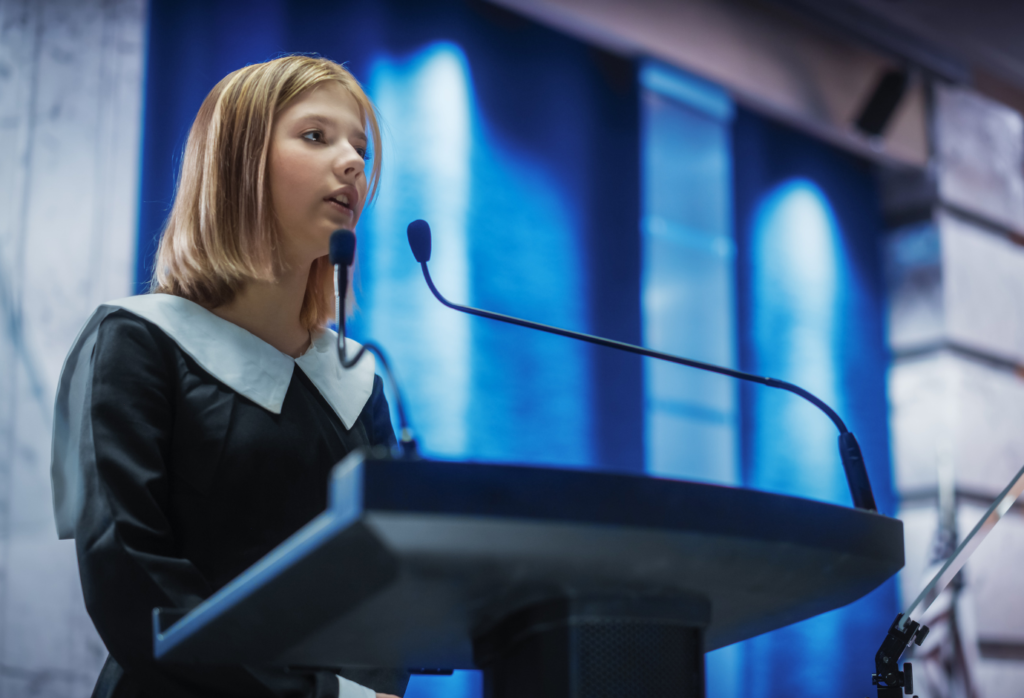Young women aren’t feeling any more optimistic about our parliamentary landscape, opportunities to build a career in politics or their safety, new research has found.
The report, conducted by Plan International Australia and YouGov, found that 60 per cent of young people don’t believe Parliament has improved or become any safer in the past year, while almost fifty percent rejected going into politics because they believe they would experience discrimination for being female.
Three quarters of respondents said they don’t feel politics is an equal or inclusive space for them, while the same number of first time respondents said they did not feel politics is an equal space for women and people of colour.
The report, which was co-written with young people including Plan International’s Youth Activists, details the views of first time voters regarding a wide range of issues, from diversity and representation in politics to the need for gender quotas and younger voices.
One Youth Activist, named Janice, believes that politics is not about meritocracy.
“If I wanted to enter politics, the reality is that it’s not up to me trying my hardest,” she said. “Political parties have the power to decide if I’m suitable to be in the public eye because of my race, even if I can represent the voices of my community.”
Plan International Australia’s CEO Susanne Legena was left ‘furious’ by the results of this report, adding that she knew from firsthand experience as a young, former staffer, that parliament “…is a reflection of the on-going power and privilege systems at play.”
“The report found that the toxic culture oozing through the heart of Australian politics is deterring girls and young people from careers in Parliament,” Legena said. “The result is that we are losing out on an entire generation of bright, powerful and diverse voices who could transform and lead this country for the better.”
“We are falling behind the rest of the world,” Legend added.
“In 2006 Australia ranked 22 out of 155 countries on the World Bank’s Gender Index for women’s political empowerment. In 2021, Australia was ranked 54. Over the last 15 years we have dropped 22 places. This is not good enough.”
“I am, quite frankly, appalled that when it comes to representation of people from different ethnicities, we are even further behind. Less than 5 per cent of parliamentarians come from diverse ethnicities, there are just six Indigenous parliamentarians and there are zero parliamentarians who have shared they are trans, non-binary or gender diverse.”
“This can have a devastating impact on girls growing up and forming their career aspirations and confidence.”
Many respondents of the survey also emphasised the importance of better representation of First Nations people in politics, as well as the need to consult with First Nations people during policy development, and respecting Indigenous perspectives.
Plan International Australia’s ambassador Yasmin Poole believes the country must continue to address the issue for many women of colour who wish to pursue a political career.
“When it comes to political representation, the reality is that we are not there yet, and even when we are, we’re not safe,” Poole said.
“However, I refuse to turn away from democracy and politics despite seeing this inequality and violence play out. As a young woman of colour, I see how doing this would only reward those who want us to remain silent. That does not mean I will pretend this systemic injustice does not exist”.
The survey outlines a list of actions the new Government can take to change the state of politics in the country. These include a commitment to gender targets, and cultural and ethnic diversity targets, a stringent report-back mechanism for survivors of sexual harassment in Parliament, and a 6-18 month timeframe to implement the Jenkins’ review recommendation.
The latest survey is part of a new report launched today by Plan International Australia, titled Represent Us.
On Monday morning, ambassadors Jamila Rizvi and Yasmin Poole, youth activists, along with four local artists, Yarli Creative, Abbey Rich, Em Ismawi and Niqui Toldi will paint 15 chairs to represent the 151 seats in the House of Representatives, with visuals symbolising the importance of better representation in politics.
“You can’t be what you can’t see,” Legena insists. “So the result of these statistics is that an entire generation of girls is growing up with the message that politics is not for them. We have to change this.”


